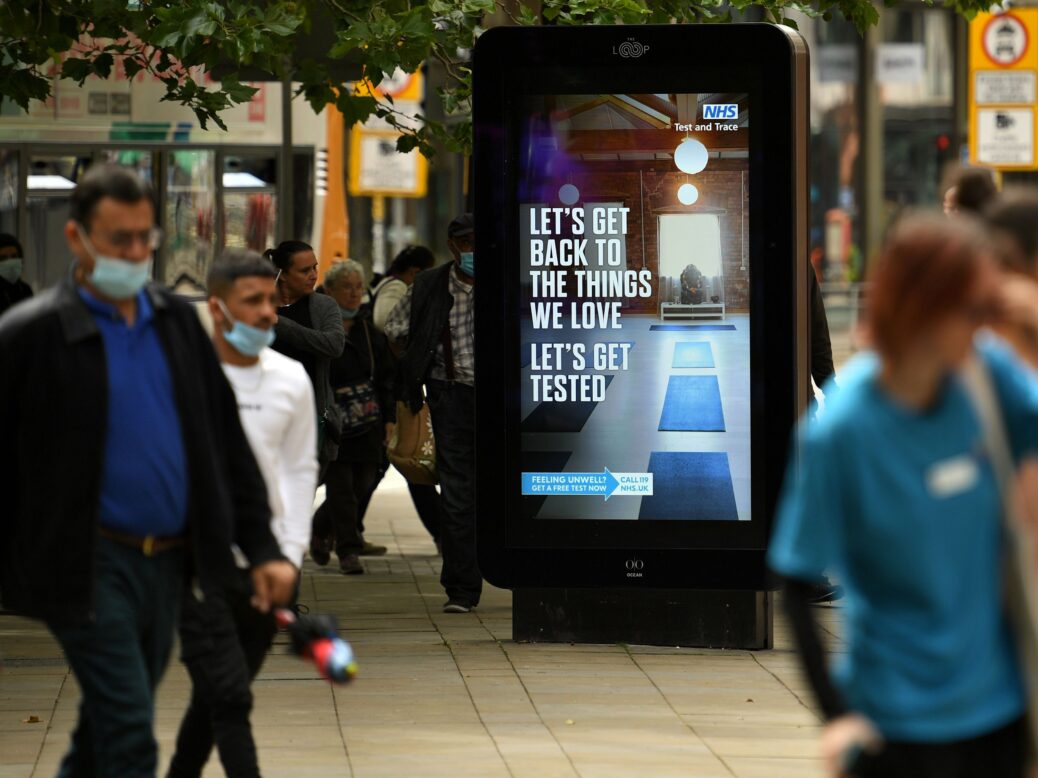
There are just four weeks to go until schools across the country start to reopen. It’s a big moment in the fight against Covid-19 and the question we have to ask is: are we ready?
Judging by reports this week about the performance of the NHS Test and Trace system, the answer is clearly no.
Confidence to reopen schools, offices, pubs and restaurants simultaneously comes from having systems in place to chase down every single positive case of Covid-19 the minute it appears. As it stands, we are miles from being in that position.
In Greater Manchester, Test and Trace is successfully reaching, on average, 52 per cent of the contacts of people who test positive for Covid-19. This is nowhere near the success rate needed to be confident of containing the spread.
Those gaps in our defences become all the more worrying when we contemplate the scale of the challenges that lie ahead of us. The stark reality is we are heading into a winter without a vaccine and an effective treatment. It could easily turn out to be the toughest winter in the 72-year history of the NHS. Unless we fix Test and Trace quickly, we could be sleepwalking into a nightmare where NHS and social care are at risk of being overwhelmed.
[see also: The contact tracing app is a failure, but not the only one]
We believe that it is possible to fix the NHS Test and Trace system and get it working to an acceptable level by winter. The solution is for Greater Manchester to take on the responsibility for carrying out the contact tracing of people whom the national system is unable to reach.
We have good reason to believe that we will be able to do the job. Like all councils, we have experienced tracing teams who don’t work from call centres, but use the good old-fashioned technique of knocking on doors. On the elements of contact tracing for which we currently have responsibility, our success rate is between 98 and 100 per cent.
To make this plan work, we need urgent action from the government on three key points.
First, we need an agreement with Test and Trace that all of the names of contacts they are unable to reach will be handed over to local teams. Ideally, this should happen within 24 hours, or 48 hours at the very latest.
Second, we need more resources from the centre to boost the size of our contact-tracing teams, both at a Greater Manchester and a district level, to pick up this new workload.
[See also: what it’s like to be locked down in Leicester]
This week, the Guardian reported that some of the call-centre staff working for Test and Trace are dealing with only a handful of calls a month. It is galling for council staff to read this when they are on the front line in communities trying to battle this virus, without the resources to do so. How can the government even begin to justify spending £10bn on this Test and Trace system, where the staff are reportedly spending most of their time twiddling their thumbs? The government urgently needs to reallocate some of the underemployed Test and Trace staff to work in communities or, as an alternative, give some of the £10bn to councils to employ their own staff.
Third, we need the government to help people on lower incomes to self-isolate, when they receive a request to do so from NHS Test and Trace.
It is suggested that one of the reasons why Test and Trace has such a low response rate in our poorest communities is that many people living in these areas are not in a position to follow the requests. If you are on a zero-hours contract, you will most likely not be paid if you ask your employer for time off to self-isolate, and you could lose your job altogether.
So, some people feel they have no choice but to continue to go into work – even if they have symptoms – because they have no other way of paying the bills or feeding their children. It is a scandal that two million people have no access to statutory sick pay. And even those who do find it very hard to live on £95 per week.
For these reasons, there is growing evidence that some people may be reluctant to return the calls of Test and Trace, and to provide the names of friends and contacts to call handlers.
Ahead of the winter, I believe it is absolutely essential that the government corrects this. The solution is simple. If any employee receives a message from the Test and Trace system asking them to self-isolate, they should be able to do so immediately on full pay. The government needs to put in place a scheme with employers to make this possible.
A message from Test and Trace is in effect a government request for people to do their public duty. It therefore follows that it should support all employees to do that, as happens when they are called up to serve on a jury. You are serving your community if you sit on a jury; you are also serving your community if you self-isolate for 14 days.
Unless this is put in place soon, we will go into the autumn and winter with our poorest communities – many of them in the “Red Wall” the government claims to support – exposed to the greatest risks of harm.
These are the three clear steps that the government can take now to keep people safe and create the right environment for the reopening of schools. It has the rest of August to fix Test and Trace, and it needs to crack on with it.
Andy Burnham was secretary of state for health from 2009-2010 and has been Mayor of Greater Manchester since 2017.





